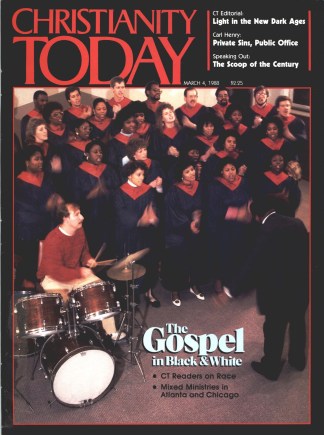One of the major barriers to world evangelization has been a lack of sufficient resources to take the gospel to every nation.
But activists John and Sylvia Ronsvalle believe Christians have the resources—they simply need to be convinced that saving and feeding the world is possible. “There seems to be this attitude that the church can do only so much,” said Sylvia, who with her husband John, runs empty tomb, inc., in Champaign, Illinois. “But for something really big to happen, we think the government has to do it. We decided to see for ourselves if this was true.”
In 1979, the pair began researching the personal income and giving patterns of church members and learned that per capita giving to the total ministry of churches was extremely low. Using information from the Bureau of Economic Analysis of the U.S. Department of Commerce as well as from denominations, the Ronsvalles claim the average church member donates 2.5 percent of his or her income to the church. “This was great news since it meant that if the church increased its giving to 10 percent, literally billions of dollars would become available for world evangelism,” explained John.
The Ronsvalles think Christians would improve their giving patterns if they really believed it would make a difference. “There’s this general feeling that we’ll never be able to truly wipe out hunger or send enough missionaries to the unreached,” says Sylvia. “And yet, just recently we’ve begun to see that humanitarian efforts are working. UNICEF recently announced statistics which show that between 1950 and 1986, the number of children under five who are dying each year has been cut in half.”
To convince Christians that the church can do more in relief and evangelization, the Ronsvalles have launched a pilot program to educate local congregations. Called M-Plus, the program encourages churches to move closer to the 10 percent tithe, and to send that money through regular denominational missions budgets. “We are not interested in creating a new distribution agency,” says John. “Local churches already have this through their denominations, and we think it is an excellent channel. We just want to help them raise more money to work with.”
M-Plus will be tested in 30 congregations in a metropolitan area yet to be determined. Working closely with denominational officials and the local church, the goal will be to move people closer to a 10 percent level of giving.
One method of increasing awareness of world need will be to yoke each congregation to a specific country. “Christians have a hard time giving to a budget, but if they have a relationship with Christians in another country, they give out of a desire to help someone,” says Sylvia.
“All along,” says John, “Jesus has told us just to go and preach, feed, and heal in his name. The good news is that we really can do it.”










